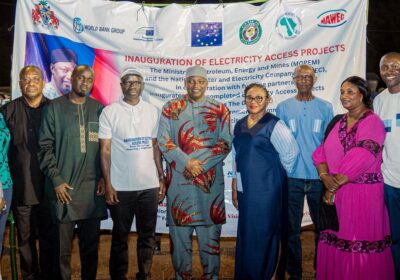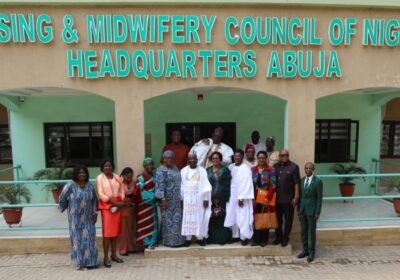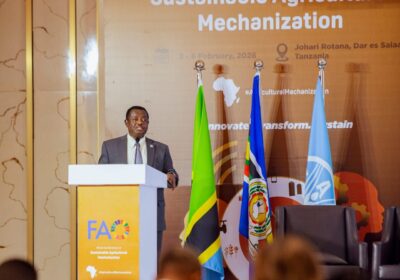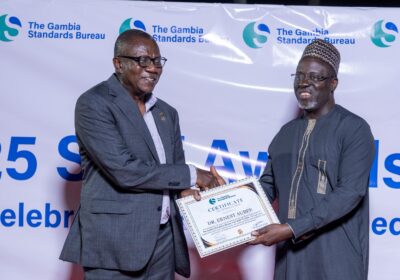FAO’ Representative to Nigeria and ECOWAS, Dr. Hussein Gadain Visit Cross River State, Meets Farmers, Stakeholders on Climate-Smart Agriculture, Forest Restoration.
By Raymond Enoch
In a significant visit aimed at strengthening climate resilience, food security, and environmental sustainability, the Food and Agriculture Organization (FAO) Representative in Nigeria and ECOWAS, Dr. Hussein Gadain, has concluded a high-level mission to Cross River State, engaging key government officials, smallholder farmers, and local stakeholders involved in agriculture and forest landscape restoration.
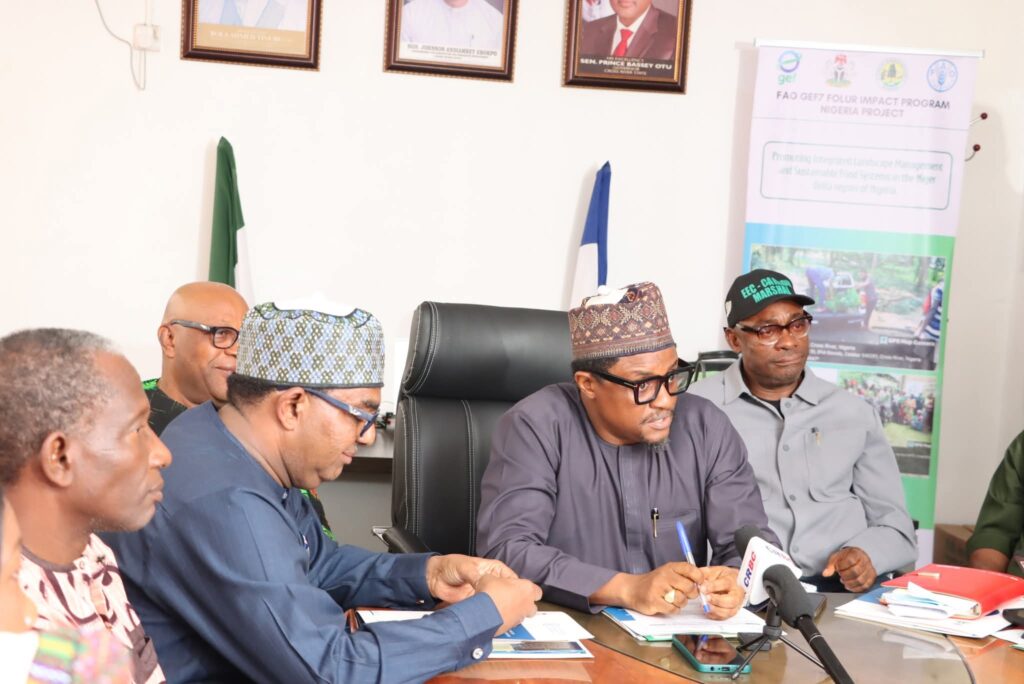
Dr. Gadain’s visit comes as part of the FAO’s oversight and support for two critical initiatives currently underway in the state — the Global Environment Facility (GEF)-funded Food Systems, Land Use and Restoration Impact Program (FOLUR) and the United Kingdom Partnering for Accelerated Climate Transitions (UKPACT) project.
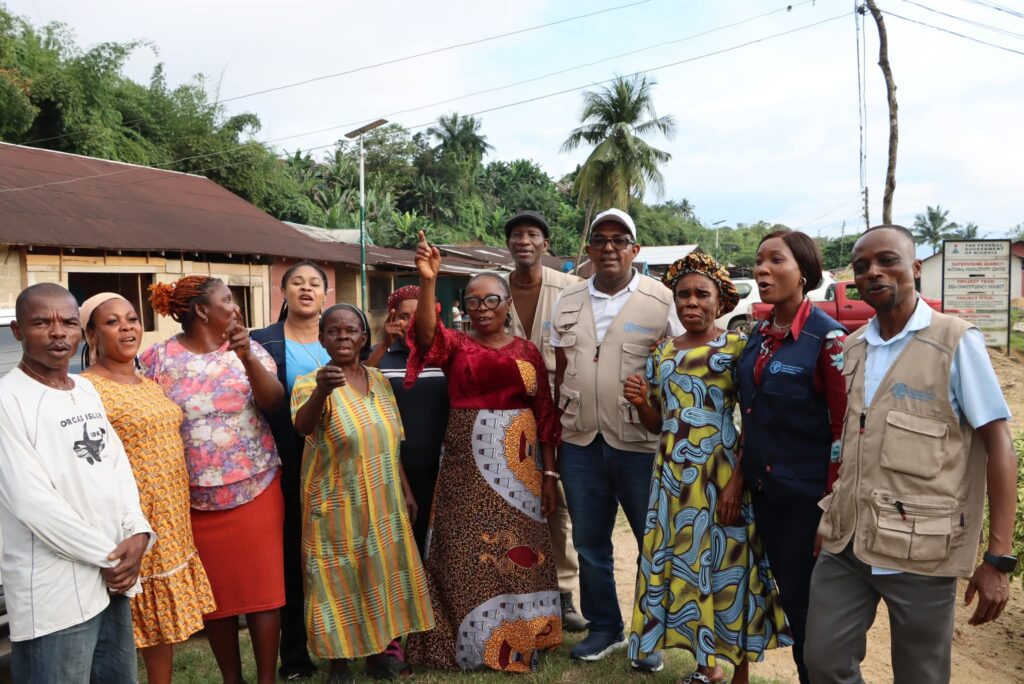
During his visit, Dr. Gadain met with members of the Cross River State Executive Council, local council leaders, and community-based farmer cooperatives. His discussions centered on progress made under the FOLUR program, which seeks to promote sustainable production in the cocoa and palm oil sectors — two of the region’s most important agricultural value chains.
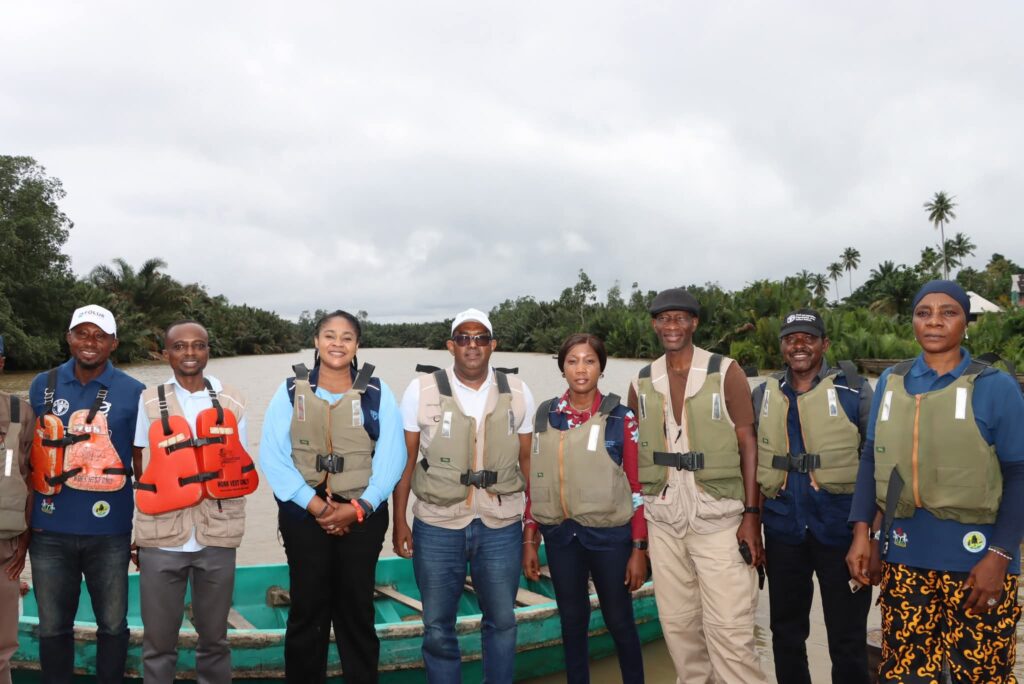
“Cross River is uniquely positioned to serve as a national model for green agriculture and forest restoration,” Dr. Gadain stated. “Through FOLUR, we are not only enhancing value chains but also restoring degraded forest landscapes, ensuring that agriculture and conservation go hand in hand.”
The FOLUR initiative integrates environmental restoration with economic development, focusing on improving land management practices, supporting local farmers with agroforestry techniques, and reversing the degradation of forested ecosystems in the state — one of Nigeria’s last biodiversity strongholds.
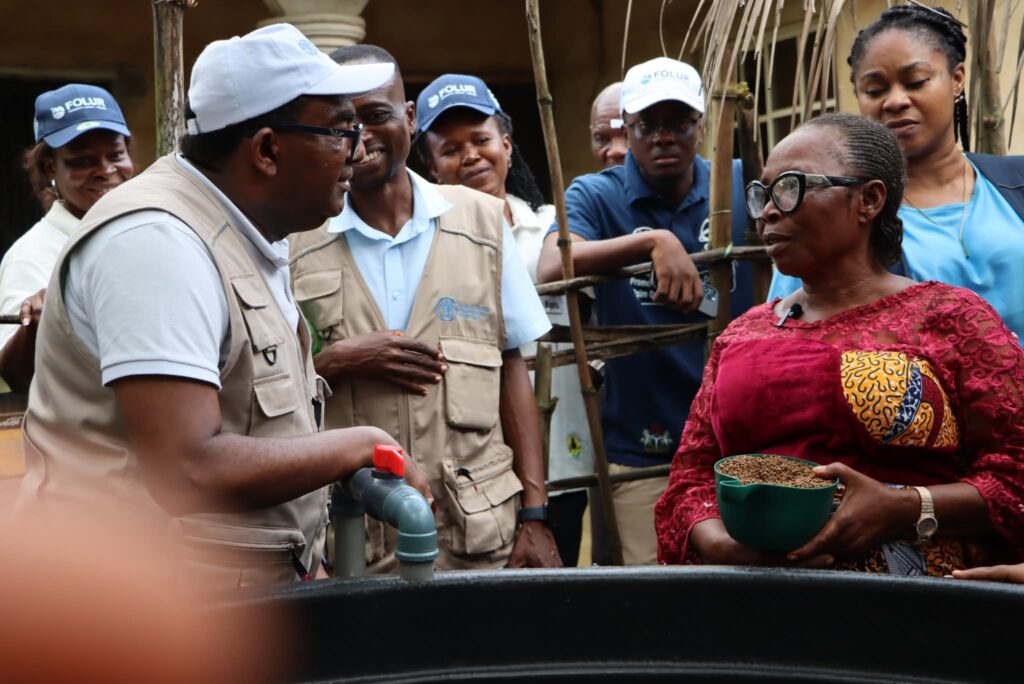
Dr. Gadain also reviewed field-level progress under the UKPACT-funded project, which is advancing climate-smart agriculture (CSA) to help smallholder farmers adapt to climate change while increasing productivity and food security.
The UKPACT intervention has introduced practices such as improved soil management, water conservation, diversified cropping systems, and low-emission farming techniques. These efforts are directly contributing to community resilience against climate variability, especially in rural areas most vulnerable to erratic weather patterns.
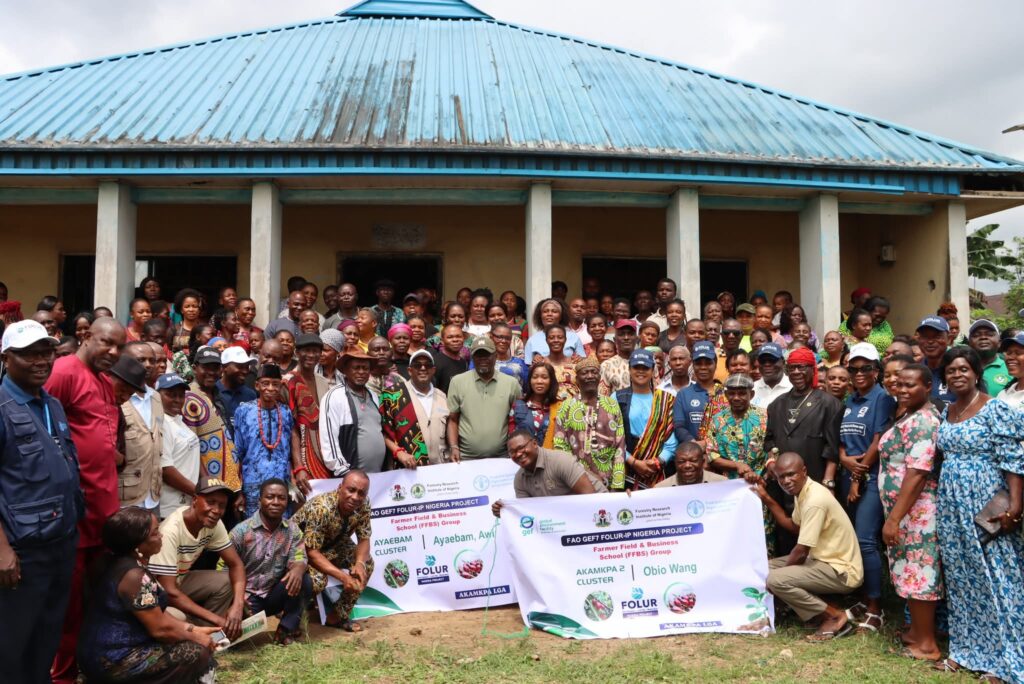
“Climate-smart agriculture is not just about yields,” Dr. Gadain emphasized during a roundtable with farmers. “It is about securing livelihoods, protecting the environment, and preparing communities for a more uncertain future.”
In meetings with local stakeholders, Dr. Gadain underscored the importance of community engagement and ownership in sustaining project outcomes. He praised the efforts of state officials, local NGOs, and farmer organizations who have been instrumental in implementing these programs at the grassroots level.
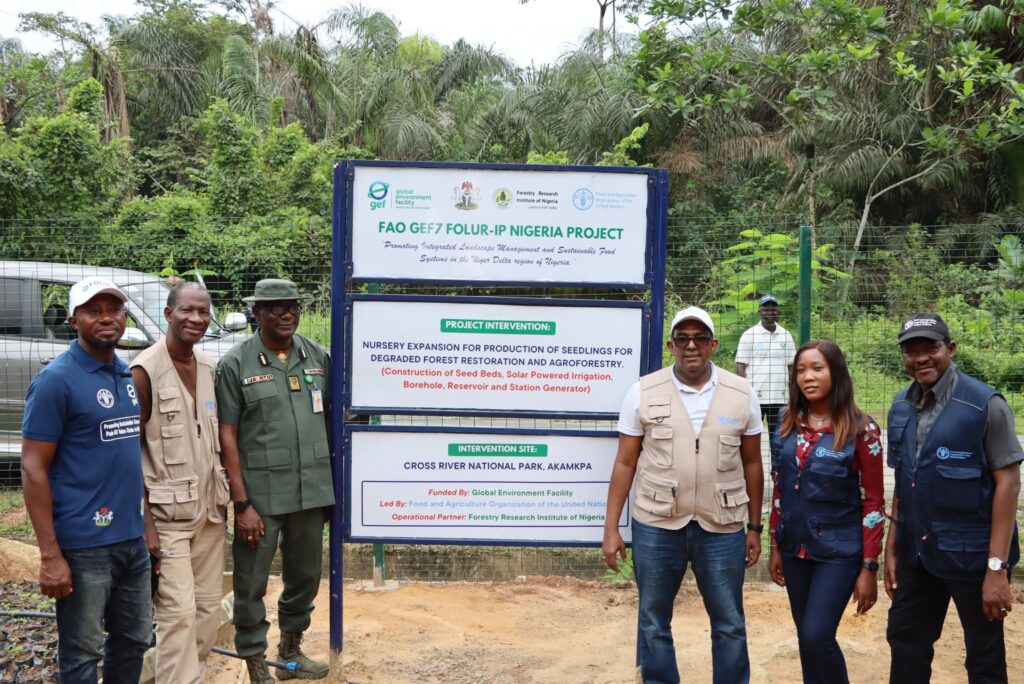
Stakeholders expressed optimism that continued collaboration with FAO and development partners would further expand opportunities for training, input access, market linkages, and policy alignment in support of sustainable development.
Dr. Gadain’s visit aligns with FAO’s global strategic framework — the Four Betters: Better Production, Better Nutrition, a Better Environment, and a Better Life — and contributes directly to the #ZeroHunger goal under the UN’s Sustainable Development Goals (SDGs).
As Cross River State strengthens its position as a leader in agroecological innovation and forest conservation, FAO’s continued partnership is providing technical support, policy dialogue, and investment coordination to amplify local impact and ensure long-term sustainability.
As Dr. Gadain departed Cross River, he reiterated FAO’s commitment to scaling successful interventions to other states, ensuring that lessons learned from Cross River’s experience can guide national efforts on food systems transformation and environmental sustainability.
“Our work here is far from over,” he concluded. “But the seeds of transformation have been planted — and with continued collaboration, we can grow a future where agriculture nourishes both people and the planet.”



